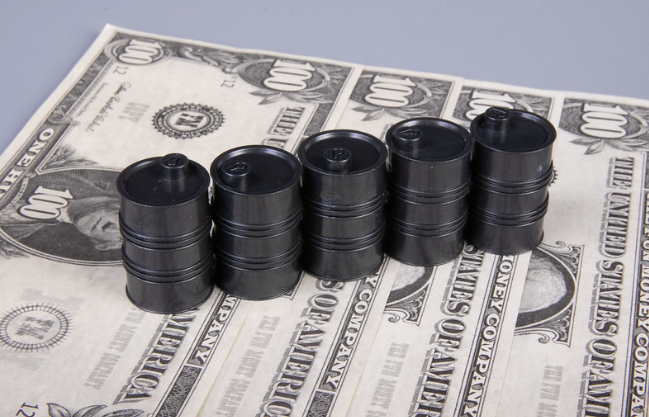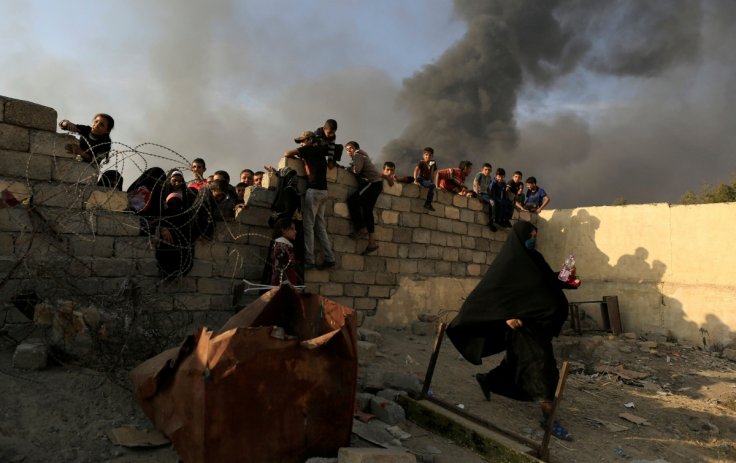The US national average gas price was $3.68 per gallon on Thursday, which was way below the $5 per gallon mark that was breached in early June. Gasoline prices had spiked on the back of supply fears in the aftermath of Russia's Ukraine war, which started in February, sending panic waves among the US consumers.
And then, the prices started declining. In fact the gasoline prices have been edging lower in the last three months. But according to AAA, gasoline prices have ended the declining streak that lasted for nearly 100 days.
Interesting Analysis
With the war in Ukraine reaching a more complex stage with Russia's setbacks and President Vladimir Putin's decision to declare a partial mobilization, there are fears that the global supply challenges are likely to worsen.

However, an interesting new analysis says that it's not Russia's war in Ukraine that will decisively influence the oil prices in the year to come.
According to researchers at the ClockTower Group, Russia isn't fuelling the price hike at the pump for the American consumers but Iraq is.
"The real risk to oil supply is the Iran-Saudi tensions, likely to dramatically increase as the U.S. struggles to keep both sides happy .... Washington will have to choose one over the other," wrote Marko Papic, the ClockTower Group's chief strategist, according to the Fortune.
Dangerous Balancing Act
His reasoning is that, even as the US is trying the balancing act between wooing both Saudi Arabia and Iran, the tensions between these rivals will only increase. When the Saudi-Iran tensions rise, it will invariably spill out into Iraq in the form of political instability and sectarian strife.
Iraq is the world's fourth largest oil exporter. While the country was a unified whole under dictator Saddam Hussein, Iran has grabbed considerable clout in the country's post-Saddam landscape thanks to its significant Shia Muslim population.

According to Pepic, the US foreign policy is a losing game in the Middle East. President Joe Biden wanted more oil supplies from its ally Saudi Arabia in the immediate aftermath of the Ukraine war, but Riyadh spurned him openly. The US then started wooing Iran by dusting up the nuclear deal of 201, which former president Donald Trump had effectively killed. The haste in which the US pushed for the start of negotiations was clearly seen as a desperate bid to work things out with Iran so that in desperate times, its oil could prove handy.
Alternating Between Rivals
Washington's policy of alternating between rivals Iran and Saudi Arabia is already wreaking havoc on Americans' energy security. If the JCPOA nuclear deal negotiations with Iran fails, and the US, invariably, gravitates to Saudi Arabia for a boost in its oil supplies, Tehran will not remain a mute observer.
In the recent past, Iran has successfully used militias in Iraq to wreak havoc on the local oil markets, by launching attacks on oil refineries in the vicinity of US bases. This will accelerate if the talks fail and Iran is spurned.
On the other hand, if the US leans more on oil from Iraq and Iran, it will have a sharply negative impact on long-term oil commitments from Saudi Arabia.
"At the moment, most investors are focused on Ukraine's offensive in Kherson and Kharkiv as being relevant to oil prices. It may yet prove to be so, given a potential menu of likely reactions from Moscow ... However, the greatest risk to the global oil supply may be Shia-on-Shia conflict in Iraq...were the negotiations over the nuclear deal to fail," Papic wrote.

In effect, the recent US policy vis-a-vis Middle East oil supplies has put it in an awkward position. "Our fear is that whichever choice the U.S. makes, somehow the blowback will end up on Iraq's doorstep ... Two regional powers duking it out in a 'buffer state' would normally not be something that investors would have to worry about. But this buffer happens to be the world's fourth largest crude exporter," the strategist says.









